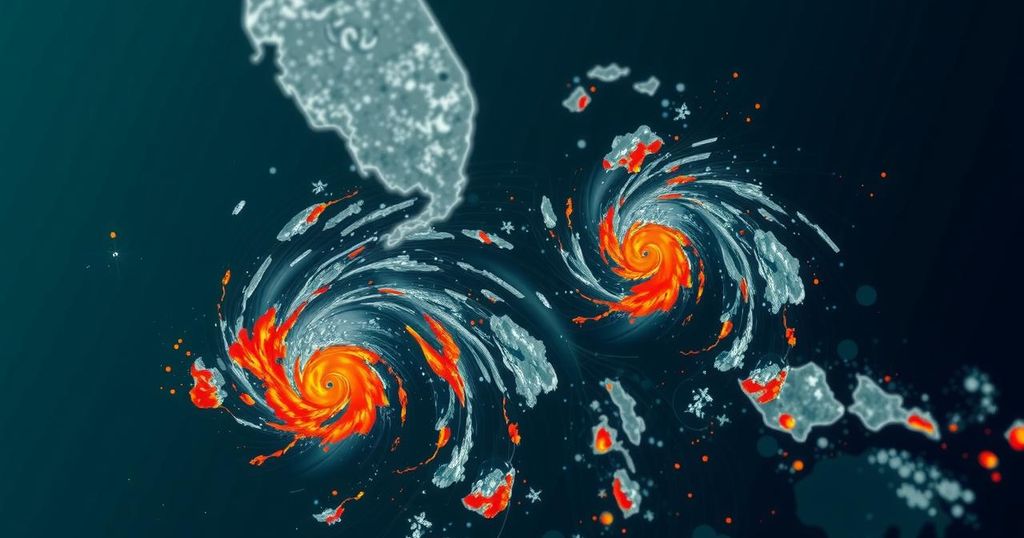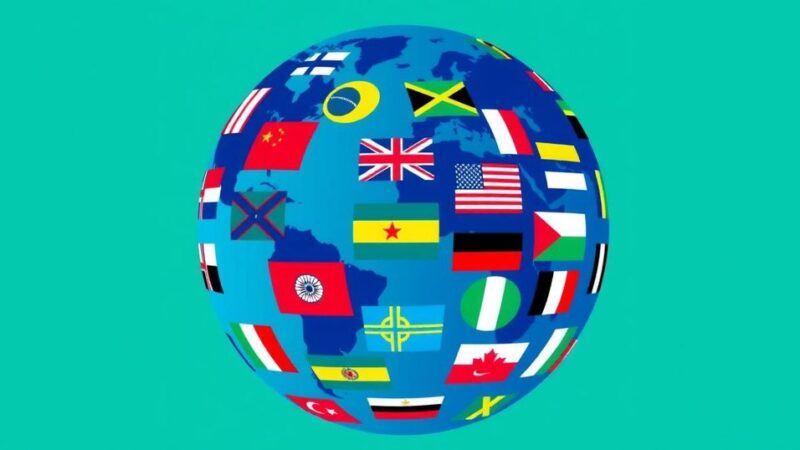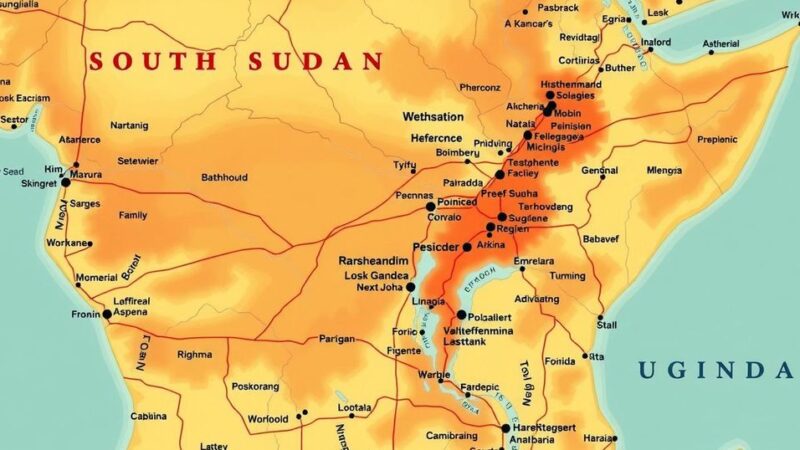Hurricane Rafael has caused island-wide power outages in Cuba for the second time in two weeks, damaging crops and infrastructure. Winds reached up to 185 km/h, impacting essential services and revealing concerns regarding the government’s emergency response capabilities amidst economic difficulties.
Following the passage of Hurricane Rafael, the entire island of Cuba has been left without power for the second time in a fortnight. The hurricane, which impacted the western regions of Cuba, brought intense winds that damaged crops and infrastructure. As Rafael, now diminished in strength, moved into the Gulf of Mexico, the storm’s effects resulted in widespread outages, with the majority of roads in the capital, Havana, becoming deserted as businesses and schools remained shuttered. On Thursday, residents emerged to survey the aftermath, facing a bleak reality marked by damaged properties and destroyed agricultural resources. Agriculture Minister Ydael Perez Brito had previously noted farmers worked to safeguard approximately 8,000 tonnes of stored tobacco leaves from the storm’s destruction. The Cuban government has mobilised military resources to aid recovery efforts following the Category 3 storm, emphasizing a collective resilience established since the revolution, though many citizens express skepticism regarding the government’s capacity to provide essential services in this crisis.
Hurricane Rafael constitutes a significant weather event during a turbulent hurricane season, having been the 17th named storm and the eighth major hurricane recorded in November over the past sixty years. The island of Cuba is particularly susceptible to natural disasters due to its aging infrastructure and economic challenges, which have been exacerbated by unfavorable relations with the United States and lingering issues in socialist allies such as Venezuela. This hurricane comes shortly after Cuba experienced another power outage due to Hurricane Oscar, raising concerns about the nation’s ability to respond effectively to ongoing challenges posed by severe weather events.
In conclusion, the devastation caused by Hurricane Rafael has underscored Cuba’s vulnerability to natural disasters, highlighting the challenges faced by the government in managing power resources and providing necessary aid to affected individuals. As citizens navigate the repercussions of yet another major storm, the ongoing economic strains and infrastructural limitations continue to raise questions about the government’s capacity to recover effectively and support its population during such crises.
Original Source: www.aljazeera.com






